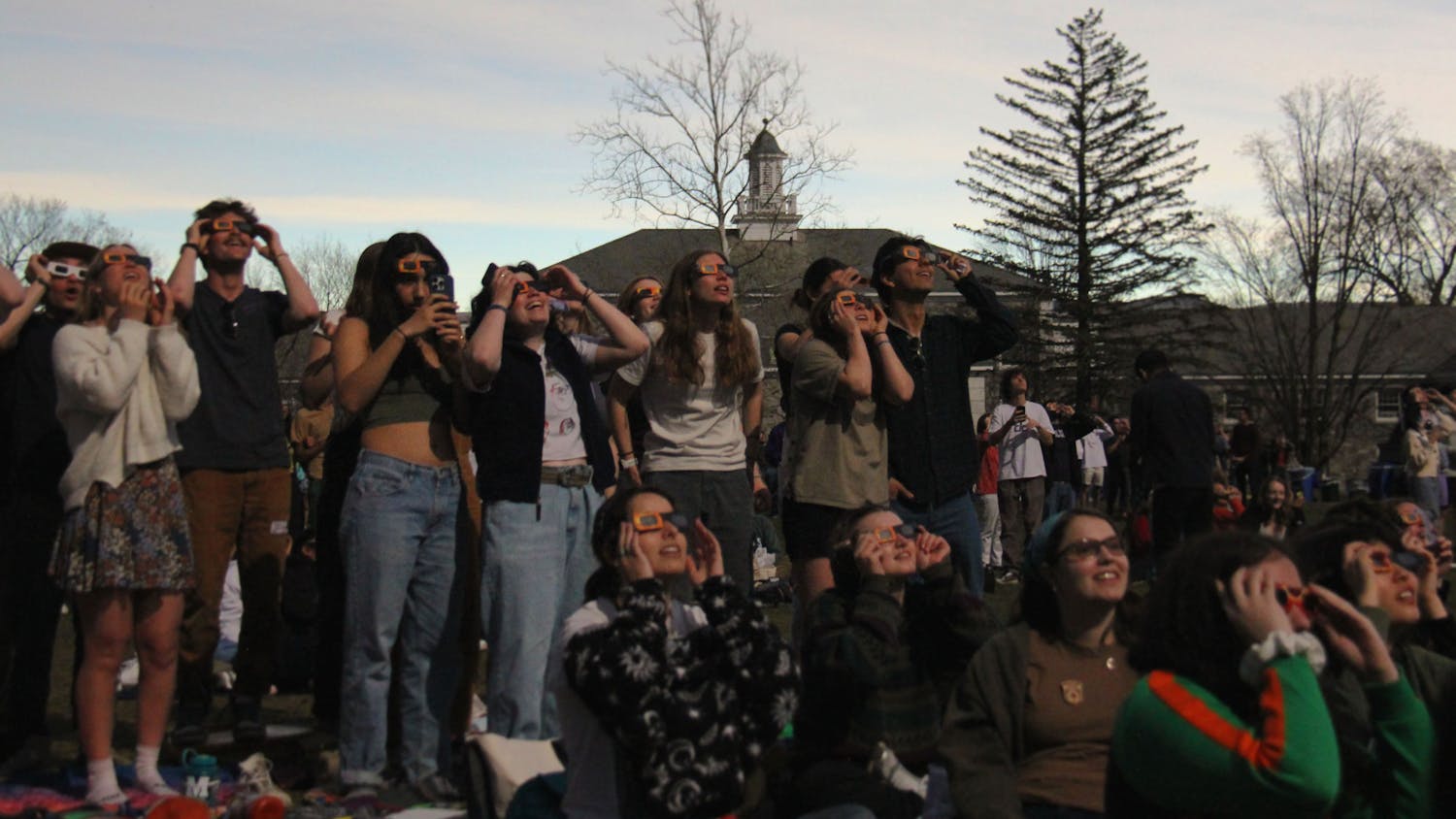Author: Lindsey Whitton Staff Writer
On Monday, Community Council accepted a new draft of the official Middlebury College policy on academic dishonesty. This revision, written to replace pages 99 and 100 in the 2001-2002 Handbook, reorganizes and clarifies the existing policy and the current structure of the academic judicial process.
Professor of Political Science and Secretary of the College Eric Davis worked with Community Council members Jaye Roseborough, executive director of Career Services, Becky Ruby '01.5 and Stefanie Beyer '02 to revise the guidelines and procedures for academic honesty issues.
They worked to "make the organization clearer" since, according to Davis, the current Handbook "has student responsibilities scattered throughout those two pages [pages 99-100] and faculty responsibilities scattered throughout those two pages."
The new draft begins by clearly defining the three possible academic violations: plagiarism, cheating and duplicate use of written work. Next, student and faculty responsibilities are explained in their own paragraphs under separate headings. Davis and the Community Council hope that this new order will make the entire policy more intelligible.
The first change in policy language appears under Article III, Section A of the Constitution of the Undergraduate Honor System. The current policy states that "any member of the College community (student, faculty or administrator) who is aware of an infraction of the honor system is morally obligated to report it…" The new draft does not include the word "morally."
Davis said he thought that the inclusion of the word emphasized that "obligated really does mean obliged" and that reporting academic dishonesty is "not simply a moral obligation where you can think about it." Removing the work "morally," he said, eliminated individual discretion.
The second change in policy is structural. Currently two separate committees, the Judicial Review Board and the Student Judicial Council, hold hearings on plagiarism and cheating, respectively. The new draft combines the two committees into the Academic Judicial Board.
The Academic Judicial Board will have seven members, four of whom will be students and three of whom will be faculty members, including one administrator. They will hear all cases related to academic dishonesty.
Last spring, it was proposed that the board have six members with equal representation from the faculty and the students. The Faculty Council, however, recommended to Community Council that the board should have seven members with one more student than faculty member. The faculty reasoned that academic honesty has traditionally been a student responsibility at Middlebury and having a student heavy board would reinforce that emphasis. The faculty also noted the responsibility and maturity of students in judicial roles at the College, dismissing the fear that a student dominated board might be biased toward not-guilty verdicts. During Monday's meeting, Community Council accepted the faculty proposal of the seven-member board.
Community Council has been working on the revision for the past year. During Monday's meeting, various changes in language were accepted. "A lot was discussed and many thoughts and feelings were bounced back and forth," said Erin Sullivan '04.5, secretary of Community Council.
When Middlebury students register for spring classes in a few weeks, they will also vote in a referendum on whether to accept the two changes made to the Constitution of the Undergraduate Honor System. To be accepted, three-quarters of the student body must vote in favor of the new draft. The referendum vote will be combined with MARS class registration held online during November 15-19. If the students accept the revisions, the faculty will ratify the new code and then the rewritten policy will go into effect next September.
Davis said he was now concerned with publicizing the revised code. He said he hoped that members of the Community Council and others involved will "explain to students that this is an important issue." He would like the Student Government Association (SGA) to help educate students on the changes and The Middlebury Campus to publish the entire new draft, so that all students can assess the revision before the referendum.
Davis expressed confidence that the new draft would be accepted. "The Community Council is strongly in favor of it. The SGA is in favor of it. I don't see any reason why it will not be passed."
Council Accepts New Honor Code Language
Comments



